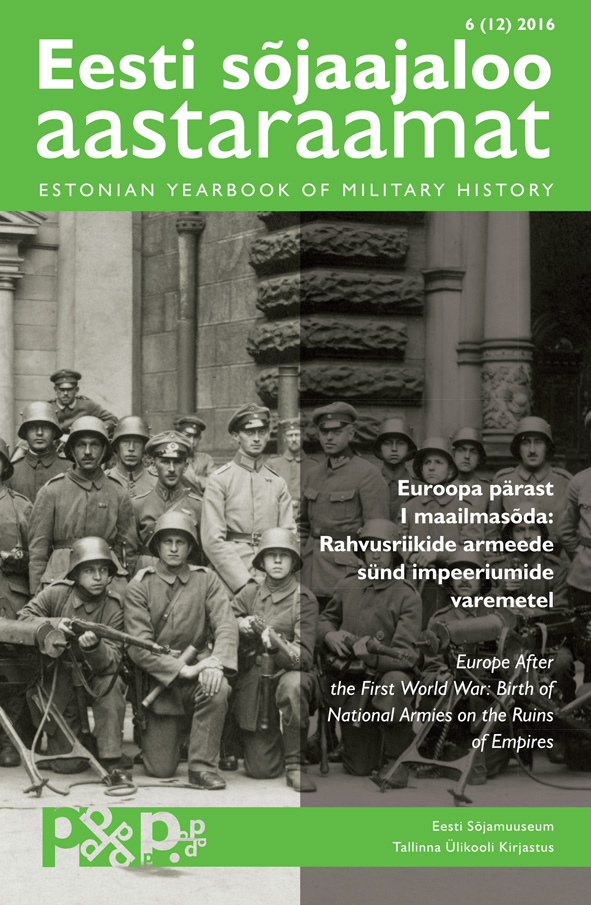Prantsusmaa sõjalise missiooni (1919–1920) suhtumine Leedu riiklusse
The attitude of the French military mission (1919–1920) towards the sovereignty of Lithuania
Author(s): Vilma BukaitėSubject(s): Military history, Recent History (1900 till today), Pre-WW I & WW I (1900 -1919), Interwar Period (1920 - 1939), Peace and Conflict Studies
Published by: Tallinna Ülikooli Kirjastus
Keywords: French-Lithuanian relations; Lithuanian War of Independence; Polish-Soviet War; military missions of the Entente countries in Eastern Europe; Polish-Lithuanian conflict;
Summary/Abstract: At the end of World War I, French politicians identified the declaration of the independence of Lithuania with Germany’s efforts to take hold of adjacent territories and expand their sphere of influence. Regardless, the Prime Minister of France and Minister of War Georges Clemenceau decided to respond positively to the request of the Prime Minister of Lithuania Mykolas Sleževičius. The first French temporary diplomatic and military mission arrived in Kaunas on 19 March 1919. Officially, it operated in Lithuania until 1 March 1921. In fact, from September 1920, in Kaunas, this mission was concerned with military cooperation only. The Mission was obligated to spread information and propaganda, and build up a sense of trust in France within society. In Kaunas, French officers taught military subjects, provided courses in the French language, participated in the training of the Lithuanian Army, attended its sites of preparation for battles and collected intelligence: information about the political situation in Lithuania, its Army and the influence of Germany, Soviet Russia and Great Britain. Th e Mission tried to work as an intermediate, searching for a peaceful solution to the deep conflict between Lithuania and Poland. Between 1917 and 1919, the Ministry of Foreign Affairs of France often discussed a small circle of Lithuanian intellectuals seeking independence, whereas the Lithuanian nation was not mature enough for this and, in general, it had lost a great deal of its identity. Therefore, statements about the political motivation and determination of Lithuanians repeated in the regular reports by the Head of the Mission, Célestin Alexandre Reboul, were of great importance. Nevertheless, the complicated and contradictory relationship between this officer and the statehood of Lithuania comes into view. His attitude changed time and again: from distrust and even arrogance at the beginning of the Mission, to attempts to help this Baltic State defend its strategically important issues, recommendations to recognize its independence, the idea of the French protectorate over Lithuania, and finally, to support the Polish military aggression against this Baltic State on October 1920. One may say that Lieutenant Colonel C. Reboul’s political sympathies for the statehood of Lithuania were functional. They existed as long as this officer hoped to steer the political and military potential of Lithuania in a direction beneficial for France. Reboul’s position also reflected the attitude of the French political layers at the time to see Lithuania as a contributor and satellite and not a totally independent state.
Journal: Eesti Sõjaajaloo Aastaraamat
- Issue Year: 6/2016
- Issue No: 1
- Page Range: 43-67
- Page Count: 25
- Language: Estonian

